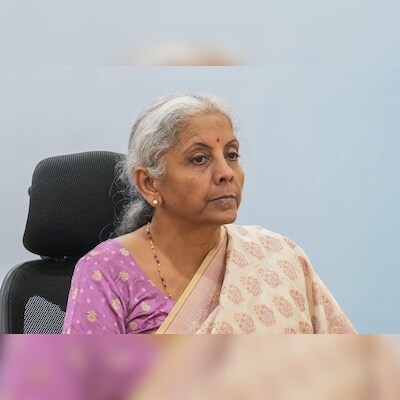The United Pension Scheme (UPS) is “not a compulsion for states,” according to Union Finance Minister Nirmala Sitharaman, who stated on Tuesday that each state is free to make its own decisions.
Nonetheless, she expressed optimism that UPS will be adopted by most states because “it has a lot of benefits for employees.”
“The UPS is an effort to enhance the National Pension System (NPS) as it currently exists. Since guaranteed pensions are being introduced under UPS, there is no retreat or U-turn. At a private press conference held here, Sitharaman made her first official remarks regarding UPS: “It is obviously a new package.”
Following the launch of UPS, the Congress had already criticised the administration, labelling it a “rollback government.” Sitharaman responded by referring to the Congress as a “sloganeering (naara) party.”
According to Sitharaman, UPS seeks to resolve problems resulting from the NPS and the Old Pension Scheme (OPS). In the event that the service time is shorter than 25 years, the UPS benefit will be awarded per rata. According to Sitharaman, the Pension Fund Regulatory and Development Authority will still be in charge of managing funds under UPS.
She added that the tax treatment under UPS will remain unchanged.
The Union Cabinet on Saturday approved the UPS, which provides an assured pension of 50% of the average basic pay drawn over the past 12 months prior to superannuation, for a minimum qualifying service of 25 years. This approval represents a significant enhancement to pension benefits for central government employees.
Separately, Sitharaman stated that rate rationalisation would be on the agenda for the upcoming Goods and Services Tax (GST) Council meeting on September 9. Nevertheless, no choice will be made at the following meeting. To finish the report, the ministerial panel will meet again, she said.
According to the administration, the UPS will help over 2.3 million central government employees starting on April 1 of the following fiscal year. For shorter service durations, the pension amount will be commensurate, with a minimum of ten years of service.
The government estimates that the cost of arrears will be Rs 800 crore, with an approximate annual cost increase of Rs 6,250 crore during the first year.
The guaranteed minimum pension and family pension are two more parts of the program.
When an employee passes away, their family will receive 60% of their immediate pension under the guaranteed family pension component. After at least ten years of service, the UPS offers a guaranteed minimum pension of Rs 10,000 per month upon superannuation.
A commission headed by former finance secretary T V Somanathan was established by the Narendra Modi administration in March 2023 to investigate methods to improve pension benefits under NPS without going back to the financially unfeasible, non-contributory OPS.

